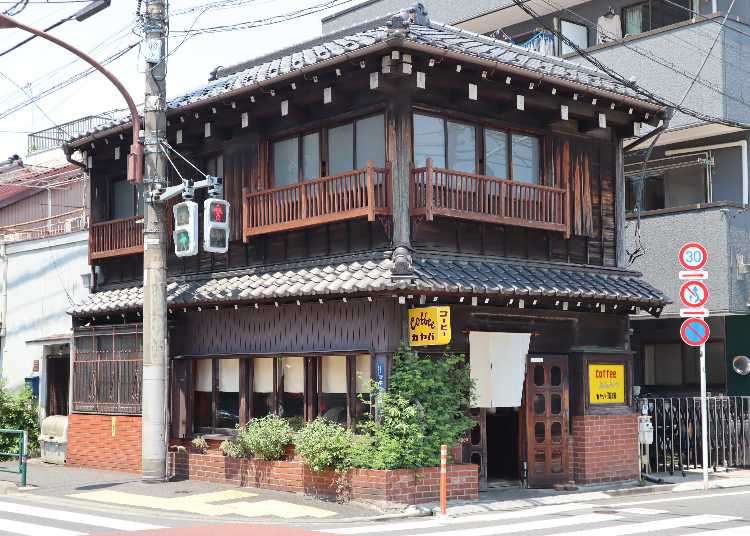
Kayaba Coffee: An Old-Fashioned Japanese 'Kissaten' Coffee Shop with 100 Years of History and Culture
- Written by: Miyu Shimada
Kayaba Coffee, situated in Yanaka, a popular tourist destination in downtown Tokyo, has been beloved by locals for over 100 years.
Despite closing its doors once, thanks to the voices of the locals, the shop reopened and came back to life stronger than ever. This coffee shop is popular with people of all kinds, with a unique charm that conveys both its modernness as well as its cozy, old-fashioned charm.
Introducing Kayaba Coffee, where you can experience the unique "kissaten culture" of Japan, and learn about its differences from region to region.
What is a kissaten and how does it relate to Japanese cafe culture?
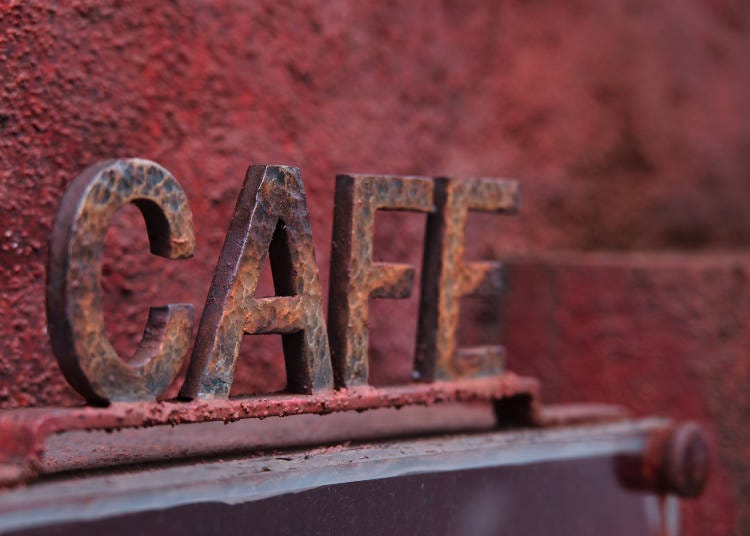
The image of the "kissaten" (喫茶店) in Japan is similar to, but a little different than that of the "cafe."
Nowadays, a "kissaten" refers to a place where you can drink coffee that usually has a traditional, retro vibe. A "cafe" is more of a chic, modern shop where you can enjoy coffee as well as the newest sweets.
However, the cafe actually has a much longer history in Japan.
The first cafe in Japan was said to be the Kahisakan, which opened in Ueno, Tokyo, in 1888. Here, people could mingle with each other while enjoying a nice fresh cup of coffee. Afterward, the concept gradually spread throughout the world. From the Taisho Period to the early Showa Period, cafes began to spring up all over.
At that time, the word "cafe" referred to more than just these shops where you could drink coffee and mingle. It also referred to bars, cabaret clubs, and other such places in which customers were served alcohol by female staff.
To distinguish one from the other, shops that purely sold coffee and light meals came to be known as "jun-kissa" (純喫茶) or "kissaten" - coffee shops.
Morning Service Breakfast Menu
One unique part of kissaten culture is the Morning Service. When you order coffee at breakfast time, you can also get bread, eggs, or salad added on for free, or at a discount. This morning service is often simply called 'Morning,' or モーニング in Japanese. It also refers to the breakfast menu itself.

Where the name "Morning Service" came from is not exactly clear, although there are several theories that it began in Aichi and Hiroshima prefectures. One of the predominant theories is that it started as a service for people who used kissaten for morning business negotiations where they served peanuts and boiled eggs.
Eventually, each shop developed its own original menu consisting of popular breakfast foods, such as egg sandwiches and fried eggs on toast. Even today, the standard morning service menu is a combination of eggs and bread.
The Morning Service: A unique menu for every region
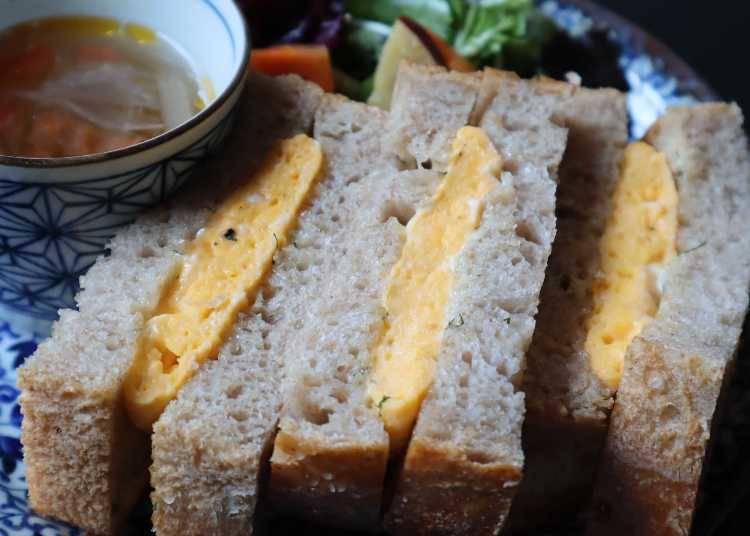
The interesting thing about the Morning Service is that each region has its own particular version. For example, an egg sandwich may be called an egg sandwich everywhere, but how it is made varies from region to region. In the Kanto region, they use egg salad consisting of crushed boiled eggs mixed with mayonnaise. In Kansai, however, it's more common to use thick, grilled eggs cooked like an omelet.
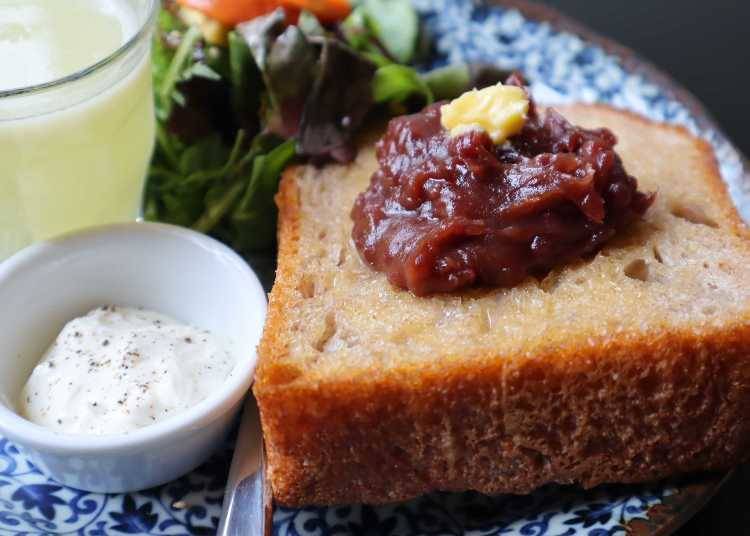
As one of the birthplaces of the Morning Service, Aichi Prefecture has a wide variety of Morning Service menus to choose from, including special menus established courtesy of town campaigns.
Nagoya City, a city in Aichi Prefecture, is particularly famous for its Ogura Toast. A dish consisting of red bean paste and butter, it has become a well-known staple of kissaten menus throughout Nagoya. Some places serve Morning Service dishes all day long, as well, making it a popular part of the local gourmet.
The birth of Kayaba Coffee
Today, we spoke with Kayaba Coffee shop manager, Mr. Naruse, about the history of this shop and its unique Japanese kissaten culture.
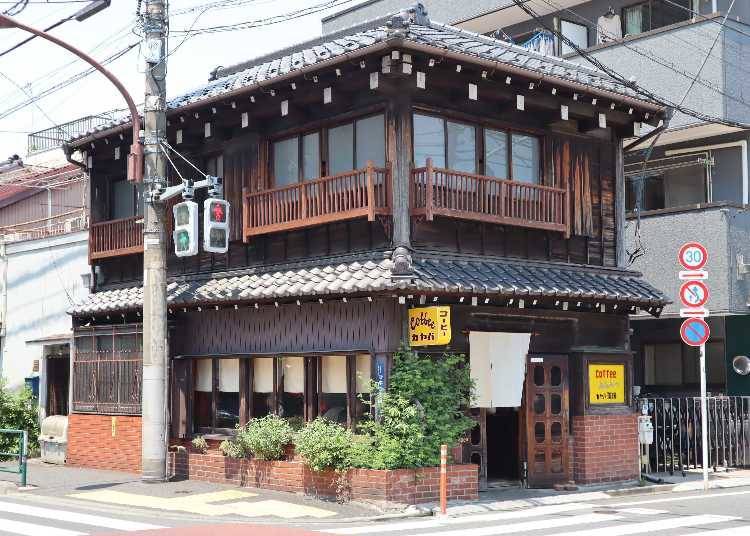
-Please tell us a little about the history of Kayaba Coffee.
"Kayaba Coffee was founded in 1938. The previous owner, Mr. Kayaba, ran it with his family for a long time. The shop was a favorite of the locals, and a symbol of Yanaka [a historic neighborhood in Tokyo].
"When the family decided to close shop in 2006, many people spoke out against it. 'Don't destroy this building! It's a precious symbol of Yanaka!' 'Let it remain as a place full of memories where people can relax'.
"With that, the shop reopened in 2008 thanks to local volunteers and the NPO, Taito Cultural & Historical Society.
After that, thanks to connections with our company (Five Cups Co., Ltd.), we took over its operation."
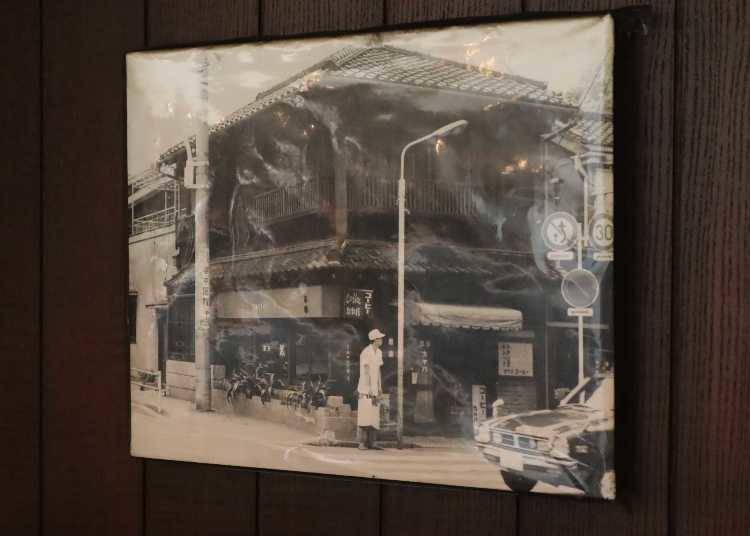
-It's not easy to create a new shop with new people while retaining its traditional atmosphere, is it?
"The most important thing is establishing a balance between the old-fashioned charm while incorporating new things.
"If the purpose was to simply keep the building around, there are lots of other ways to use it, such as for a gallery.
"But after hearing stories from the locals who frequented Kayaba Coffee, I felt it would be more meaningful to leave it as the same Kayaba Coffee they knew and loved growing up. Isn't it important to keep that alive?"
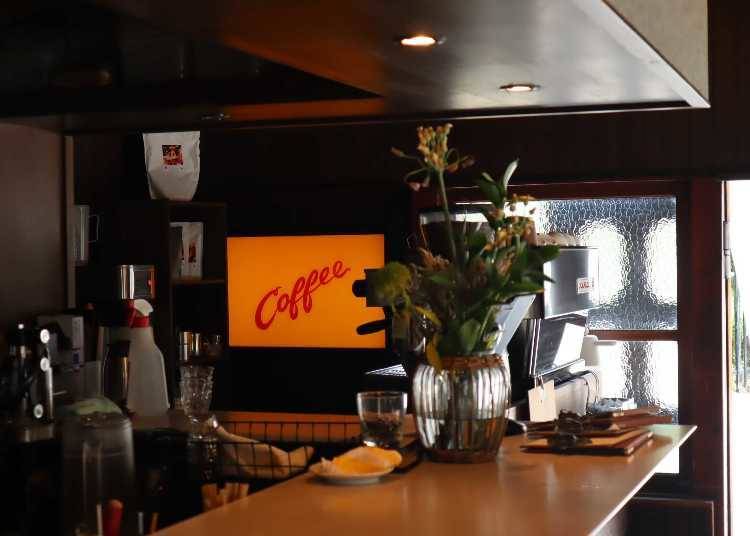
"On the other hand, rather than simply leaving it as a relic, I think it's also important to touch it up in accordance with the times by incorporating new ideas.
"So on top of management, I also make it a point to challenge new things. I always cherish it. The theme is, 'learning from the past.'"
(*By developing new ideas based on studying old teachings from the past.)
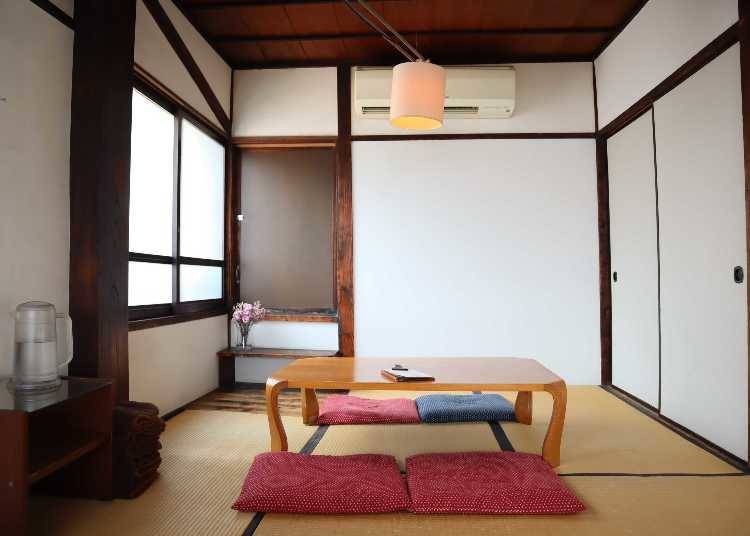
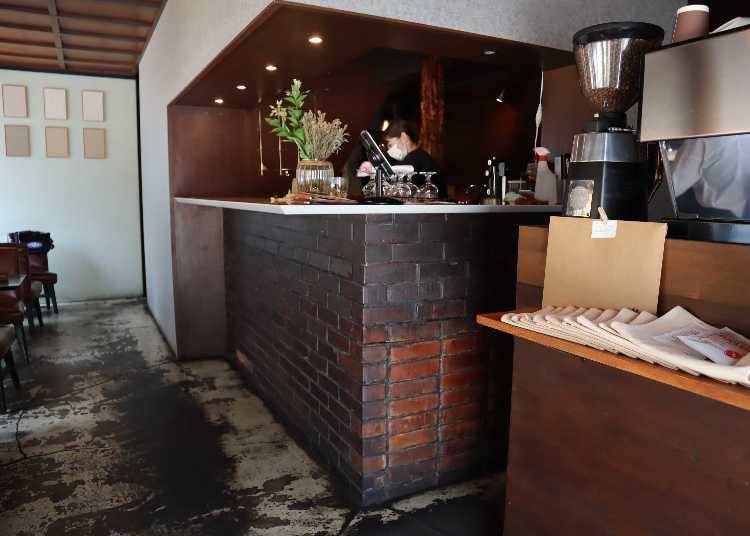
-The vibe of the interior has a unique charm you don't usually find in newer shops.
"The structure of the two-story wooden building and the interior retains the old-fashioned atmosphere. However, we regularly maintain it following modern standards of comfort, cleanliness, and convenience."
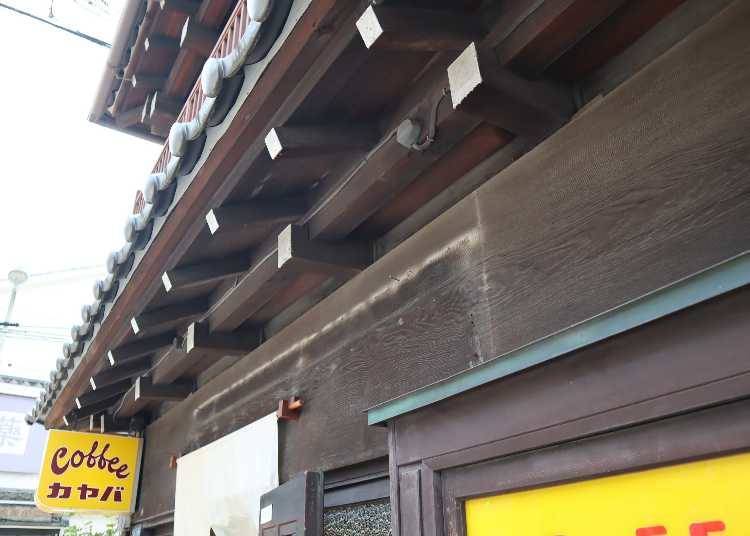
"The exterior is characterized by the hipped roof you usually see in traditional Japanese-style houses. It uses 'dashigeta-zukuri,' a girder structure of exposed beams (the white parts peeking out from under the roof). This structure was a common sight in the streets of old Japan but is pretty rare to come across nowadays."
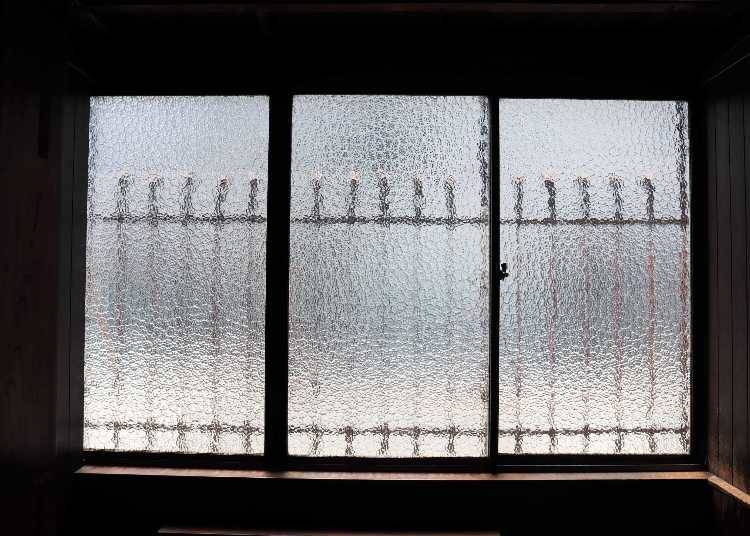
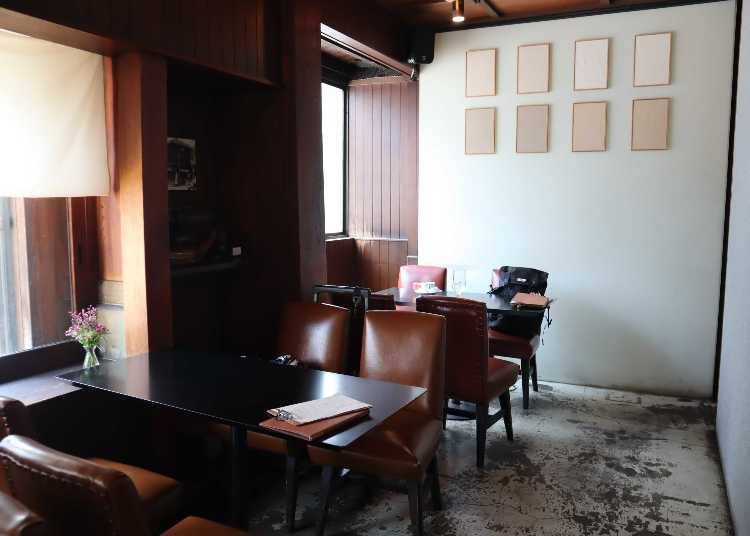
-Why do you think people still love Kayaba Coffee?
"Because people of all walks of life were involved in the development of the shop, I think people of all generations, whether old-timers or newcomers, can appreciate it."
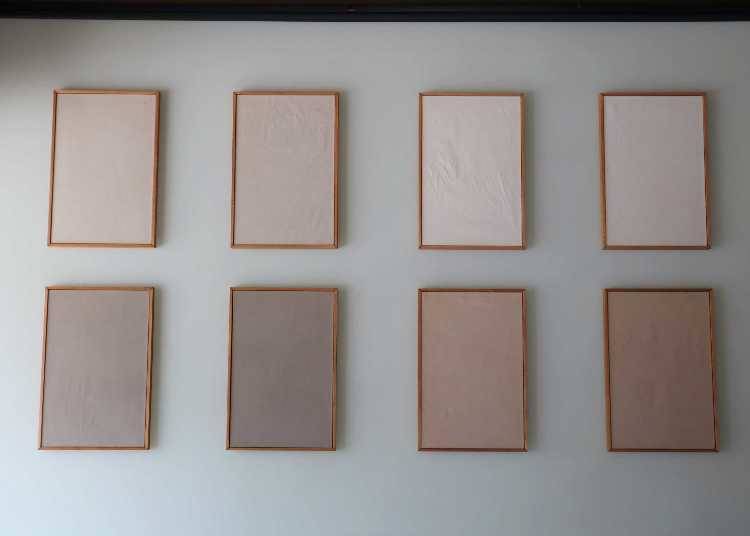
"Our customer base consists of young people who heard about us on social media, people stopping by during their annual grave visit, foreigners interested in the architecture, and office workers who just happen to be passing by.
"We get all types of people. I think the reason so many people visit the shop is that its unique atmosphere blends the nostalgia of the old kissaten with that of a modern, trendy cafe".
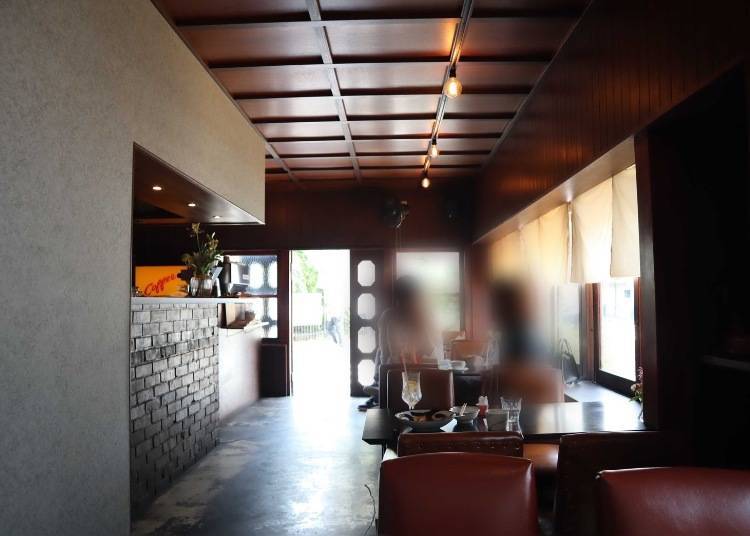
"Although I've maintained the shop's original recipes and kept its nostalgic atmosphere as-is, I still want our customers to feel some novelty. After all, that's what it means to eat at Kayaba Coffee. It's of utmost importance to me to fine-tune this space and its atmosphere so that customers can experience that unique, special vibe that only Kayaba Coffee can offer".
Must-try menu item! Kayaba Coffee's classic Egg Sandwich (1,000 yen)
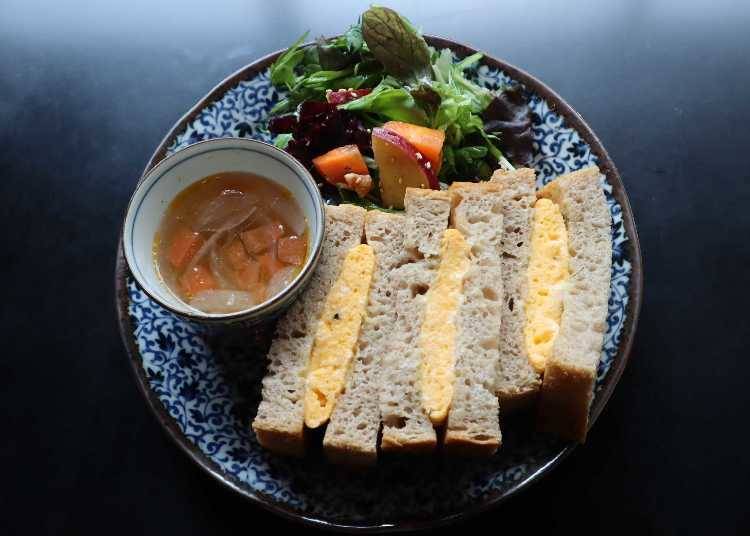
This is a modern take on the classic Egg Sandwich, using the old-fashioned recipe and sourdough bread. With crisp bread on the outside and fluffy egg on the inside, this dish is sure to be a familiar favorite for foreign visitors.

Many kissaten sandwiches are soft, fluffy, and made to be eaten quickly. However, Kayaba Coffee's egg sandwiches are filling enough that you'll want to take your time.
"I consider the volume of the meal and its ingredients so that customers can take their time and enjoy their coffee and food," says Naruse. It's easy to see what great care has been put into even the most minor details of the shop!
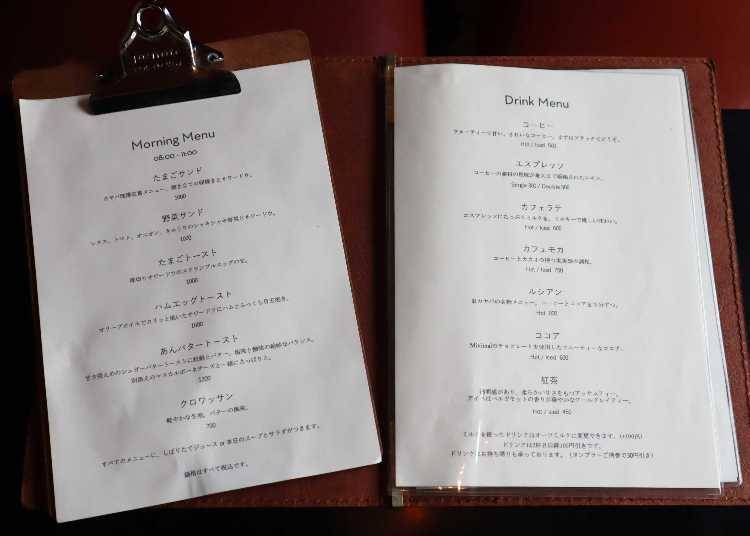
The Morning Service is available during a 3-hour window, from 8:00 a.m. to 11:00 a.m. All dishes include freshly squeezed juice or the soup of the day. Some include a seasonal vegetable salad.
Japanese-style dish: Red Bean Butter Sandwich (1,200 yen)
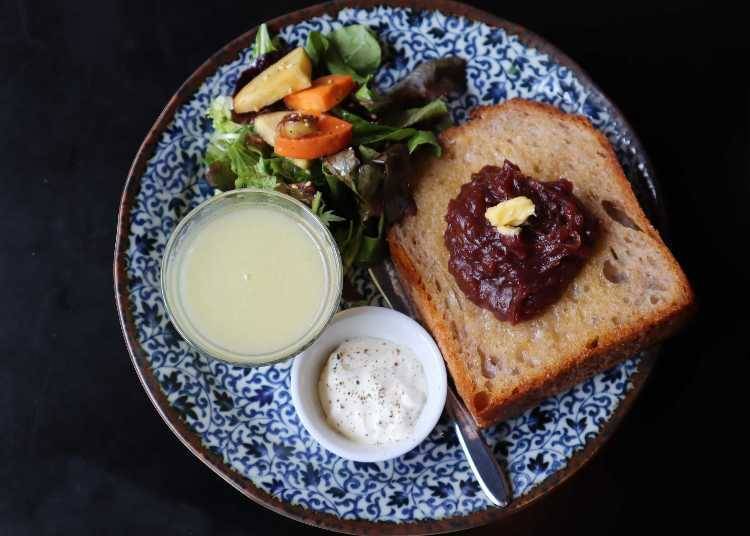
Try the Red Bean Butter Toast for an authentically Japanese kissaten dish made with Japanese ingredients.

The mildly sweet bean paste blends perfectly with the rich buttery flavor.

Add a touch of the included mascarpone cheese for a subtle dash of flavor.
Yanaka Ginger (600 yen), a beverage made with original syrup and spices

Yanaka Ginger is a drink made using original ginger syrup and added spices. This refreshingly aromatic beverage comes iced in the summer and hot in the winter, and pairs perfectly well with Red Bean Butter Toast any time of year!
Kayaba Coffee must-try item: The Russian (600 yen)
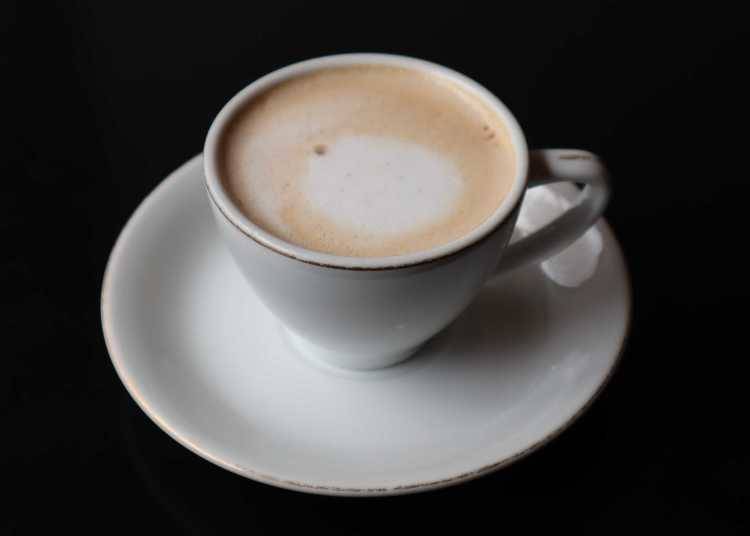
The 'Russian' is a traditional coffee arrangement popular in Ukraine. Kayaba Coffee's version mixes drip coffee, chocolate syrup, and milk.
The coffee is fragrant, mildly sweet, and easy to drink, even for non-coffee drinkers! It's a drink we highly recommend!
Kayaba Coffee: A memorable experience
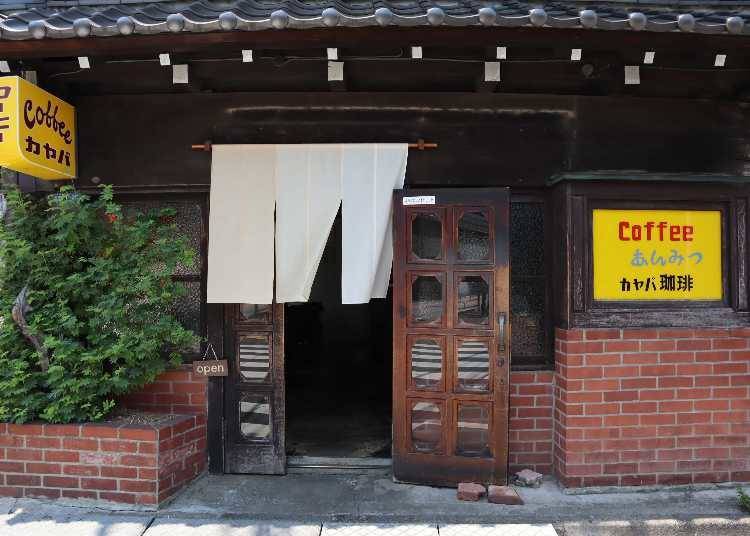
Kayaba Coffee is brimming with history and feelings of the many people who have passed through its doors. It's not easy to maintain an old-fashioned building such as this while simultaneously making it new.
That exquisite balance it achieves between old-fashioned goodness and the modern vibe of the times is all thanks to the many people who poured out their love for the shop to keep it alive.
Time passes slowly when you sit and relax at Kayaba Coffee. Next time you find yourself in Japan, this is one place you won't want to skip.
*Information in article as of May 2022
Translated by: Krys Suzuki
-
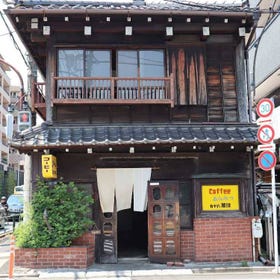 Kayaba Coffeeカヤバ珈琲
Kayaba Coffeeカヤバ珈琲- Address 6-1-29, Yanaka, Taito Ku, Tokyo, 110-0001
- Phone Number 03-5832-9896
・Hours:
- Mon-Fri: 8 AM - 5 PM (Last orders at 4:30 PM)
- Sat/Sun/Holidays: 8 AM - 6 PM (Last orders at 5:30 PM)
・Regular Holidays: None
-

-
Address
3, Yanaka, Taitou-ku, Tokyo, 110-0001
View Map -
Nearest Station
Nippori Station (JR Keihin-Tohoku Line / JR Yamanote Line / JR Joban Line / JR Ueno Tokyo Line / Nippori-Toneri Liner / Keisei Main Line / Narita SKY ACCESS Line)
5 minutes on foot
-
Address
3, Yanaka, Taitou-ku, Tokyo, 110-0001
Miyu is a travel writer and tour conductor with over a decade of experience in developing educational content for working individuals. She has a passion for exploring new cultures and has visited more than 150 cities in around 50 countries. Her goal is to sample great food, experience nature, enjoy historical sites, and bathe in hot springs around the world. Miyu left her corporate job to pursue her passion for travel and now spends over 100 days a year abroad while working as a writer. She promotes the joy of travel, the beauty of Japan, and the diverse cultures of the world by traveling to different parts of Japan and collaborating with inbound tour operators and fellow travel writers.
- Area
- Category
*Prices and options mentioned are subject to change.
*Unless stated otherwise, all prices include tax.
Recommended places for you
-

Yoru Parfait specialty restaurant Parfaiteria beL
Other Cafes and Sweets
Shibuya
-

Yoru Parfait specialty restaurant Momobukuro
Other Cafes and Sweets
Ikebukuro
-

Concafeland
Other Cafes and Sweets
Akihabara
-

Yoru parfait specialty restaurant Parfaiteria beL Shinjukusanchome
Other Cafes and Sweets
Shinjuku
-

SHOGUN cafe & experience
Other Cafes and Sweets
Harajuku
-

& Yogurt
Other Cafes and Sweets
Harajuku
-

Stay with Snorlax? Grand Hyatt Tokyo's Summer Pokémon Resort Experience Is the Ultimate Sleepover
-

Hachiji juppun mae – A Japanese phrase that even Japanese people can’t agree on the meaning of
-

Tokyo's Top Electronics Stores: Find Your Perfect Store by Purpose & Style (Major Retailers, Gaming, Cameras & More)
by: Ran Tanaka
-
Ad

Lapoppo Farm, one of Japan's leading makers of sweet potato treats! An in-depth guide to the secrets behind its popularity, including best-selling products and facilities!
-

Police to ticket cyclists riding on sidewalks, which amounts to almost all cyclists in Japan
-

Japan Summer Sales 2025: Your Ultimate Guide to Shopping Deals In Tokyo, Kansai & More!
Inspiration for Accommodations
-

Enjoy Mt. Fuji from the Comfort of Your Room! Recommended Ryokan with Mt. Fuji View
-

Stay Near the Cherry Blossoms! Hotels for Cherry Blossom Viewing in Tokyo
-

Family-Friendly Hotels with Free Shuttle to Disneyland: Convenient Access for a Magical Stay
-

Top Ranked Hakone Hotels with Mt. Fuji View: Enjoy Stunning Scenery from Your Private Space
-

Convenient Tokyo Hotels with Airport Shuttle: Ideal for Families and Heavy Luggage
-

Stunning Tokyo Tower View Hotels: Enjoy Spectacular Scenery from Your Private Space
-

Convenient Asakusa Hotels with Kitchens: Ideal for Extended Family Visits
-

Experience Luxury: Hakone's 10 Best Five-Star Accommodations
-

Enjoy Mt. Fuji Autumn Leaves! Top Hotels Near the Popular Autumn Leaves Corridor
-

Experience Hakone Fall Foliage from Your Room with Stunning Views
-

Essential Tokyo: The Complete Guide to Ikebukuro Station
-

It's Not Black Beer! Tokyo's Top Three Draft Coffee Bars
-

Exploring Tokyo Station: 11 Must-Visit Spots Around the Heart of Tokyo
-

Dive Into Tokyo's Nightlife: Ginza & Tsukiji After 9 p.m.
-

Guide to Tokyo's Old Quarter: 7 Quaint Spots in Yanesen!
-

Check Out This Charming Local Tokyo Bakery! Serving Incredible Bread For Over 70 Years
- #best ramen tokyo
- #what to buy in ameyoko
- #what to bring to japan
- #new years in tokyo
- #best izakaya shinjuku
- #things to do tokyo
- #japanese nail trends
- #what to do in odaiba
- #onsen tattoo friendly tokyo
- #daiso
- #best sushi ginza
- #japanese convenience store snacks
- #best yakiniku shibuya
- #japanese fashion culture
- #best japanese soft drinks
















